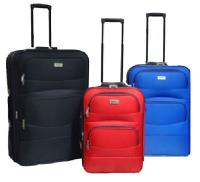What’s the difference between an underwriter, administrator, and agent?
In the world of tangible goods, you have a manufacturer, a distributor, and a retailer.
The manufacturer designs the product and decides what materials to use in making it.
The distributor negotiates prices with the manufacturer and arranges for the product to be sold by retailers.
The retailer finds customers, explains the product, makes the sale, and provides support.
It basically works the same in insurance
An underwriter is the manufacturer. They design the products (policies), decide what to include in it (coverages), and what they need to charge to make a profit (premium collected vs. risk of paid claims)
An administrator is the distributor. They handle phone calls, process applications, and administer policies. They also work with agents and brokers.
Agents are the retailers. They market the policies, help customers find the right product, answer questions, submit applications, and collect payment.
For example:
InsureMyTrip.com is an agency (retailer). They market policies for administrators such as CSA Travel Protection, Seven Corners, and Travelex. These administrators process payments/claims for policies underwritten by companies like AIG and Virginia Surety.

 In the world of travel insurance, there are two basic types of coverage.
In the world of travel insurance, there are two basic types of coverage. When many people think of travel insurance, they think of canceled vacations and lost baggage. The medical coverage offered by package policies is almost an added benefit, especially if you are traveling in your own country.
When many people think of travel insurance, they think of canceled vacations and lost baggage. The medical coverage offered by package policies is almost an added benefit, especially if you are traveling in your own country. Legal Version: A pre-existing condition is defined as any injury, illness, sickness, disease, or other physical, medical, mental or nervous condition, disorder or ailment that existed at the time of application or during the past duration(specified by each insurance plan) prior to the effective date of the insurance, including any subsequent, chronic or recurring complications or consequences related to thereto or arising there from.
Legal Version: A pre-existing condition is defined as any injury, illness, sickness, disease, or other physical, medical, mental or nervous condition, disorder or ailment that existed at the time of application or during the past duration(specified by each insurance plan) prior to the effective date of the insurance, including any subsequent, chronic or recurring complications or consequences related to thereto or arising there from. Is terrorism covered by travel insurance policies?
Is terrorism covered by travel insurance policies? Will I be covered by travel insurance if the injury is alcohol related?
Will I be covered by travel insurance if the injury is alcohol related?